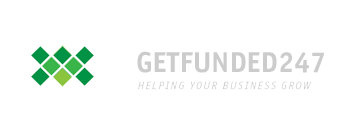(SBA Loans) What is an SBA Loan?
How SBA Loans Work
The Small Business Administration (SBA) is a federal agency dedicated to helping entrepreneurs improve their small businesses, take advantage of contracting opportunities, and gain access to small business loans.
However, one common misconception is that SBA lends money to businesses. For the most part, that’s not true. The agency does not directly lend money to businesses. You actually get an SBA loan from a bank that participates in SBA financing. The SBA guarantees a percentage of those loans to the banks, so financial institutions have more incentive to lend money to small businesses.
Because of this guarantee, bankers may be more willing to lend you money even if you don’t fit their strict credit criteria. But at many major banks, getting an SBA loan can still often be a complex and lengthy process that can take several months. Lenders will want to review your credit and financial statements and expect you to have collateral to secure the loan. So even with the government guarantee, many small businesses may not qualify for SBA financing.
If you would like to apply for an SBA loan, expect to complete an extensive loan application, plus provide documents such as financial statements, information on your collateral, a description of your business, and a statement of how you’ll use the loan proceeds. They will look for applicants with good credit, a solid business plan, collateral, and a demonstrated ability to repay the loan.
You’ll also have to choose which SBA loan program you’d like to apply to. The most popular programs are the SBA 7(a) loan which can be used for many general business purposes and the CDC/504 loan, which is most often used to purchase major fixed assets such as equipment and commercial real estate.
Cost
The cost and repayment of your SBA loan will be dependent on the program you choose. Below are a few financial figures associated with each of SBA’s most popular loan programs.
7(a) Loan Program
Fees: A guaranty fee, based on the loan’s maturity and the dollar amount guaranteed (versus the total loan amount) might be included in the total cost of the loan. The lender originally pays the guaranty fee but has the option to pass that expense on to the borrower. The fees range from 0% (for loans under $150,000) to 3.5% on loans of more than $700,000. There is also an additional fee of 0.25% on any guaranteed portion of more than $1 million.
Interest: Both fixed and variable interest rate structures are available. The maximum rate is composed of two parts, a base rate and an allowable spread. Lenders are allowed to add an additional spread to the base rate to calculate the final rate. For loans with maturities of shorter than 7 years, the maximum spread will be no more than 2.25%. For greater maturities, the maximum spread increases to 2.75%.
Repayment: Monthly payments for 25 years for real estate, 10 years for equipment, and generally up to 7 years for working capital.
504 Loan Program
Fees: Fees total approximately 3% of the debenture and may be financed with the loan.
Interest: Interest rates on 504 loans are pegged to an increment above the current market rate for 5-year and 10-year U.S. Treasury issues.
Repayment: Maturity terms of 10 and 20 years are available.
Microloan Program
Fees: None
Interest: Between 8 and 13 percent.
Repayment: Loan repayment terms vary depending on the loan amount, use of funding, and other criteria, but the maximum repayment term allowed for an SBA microloan is 6 years.
Who Qualifies
Many businesses, including newer ones, can qualify for an SBA loan. However, be prepared that an SBA loan can require significant documentation, and if your credit is poor, or your company has a limited track record, that could disqualify your application.

